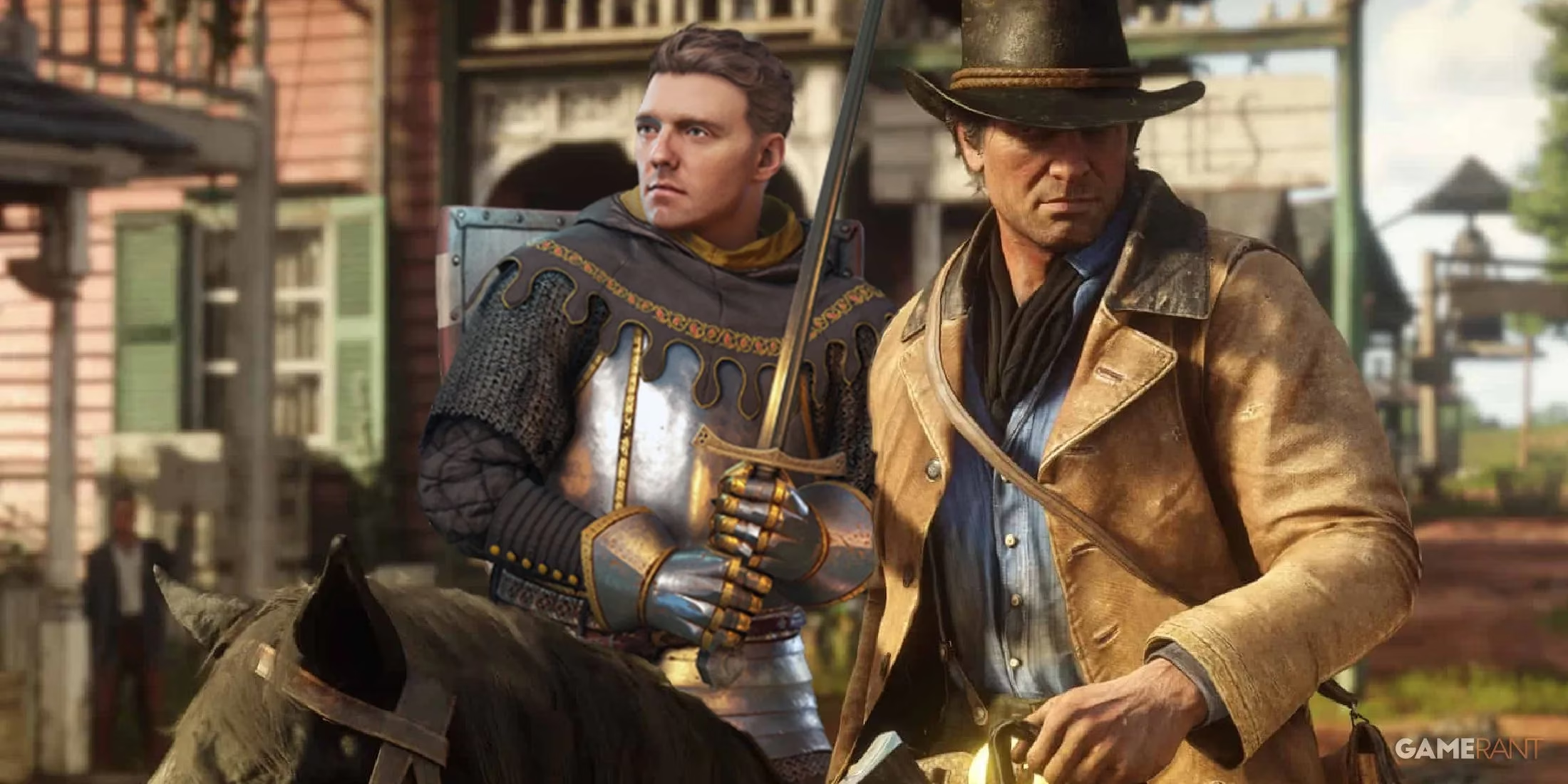In the realm of role-playing games, player immersion remains a tricky beast to tame. Rockstar's Red Dead Redemption 2 has stood tall for years, aging gracefully like a fine wine in a cutthroat market. Its legacy? Unmatched depth in storytelling and world-building. Enter Kingdom Come: Deliverance 2, Warhorse Studio's medieval masterpiece that hit the scene in 2025, and wow, it's shaking things up. Both games pull players into vivid worlds, but KCD2 cranks realism to eleven.  This image captures the essence—Arthur Morgan, the rugged outlaw, and Henry, the humble blacksmith—symbols of how RPG protagonists can drive emotional connections. While RDR2 set the bar, KCD2 isn't just a clone; it carves its own path with historical grit. For gamers craving that sink-into-your-seat feel, these titles are like twin peaks in a crowded skyline. 🎮✨
This image captures the essence—Arthur Morgan, the rugged outlaw, and Henry, the humble blacksmith—symbols of how RPG protagonists can drive emotional connections. While RDR2 set the bar, KCD2 isn't just a clone; it carves its own path with historical grit. For gamers craving that sink-into-your-seat feel, these titles are like twin peaks in a crowded skyline. 🎮✨
Character development is where magic happens. Arthur Morgan from RDR2? He's legendary—a criminal with layers, whose journey tugs at heartstrings as he evolves from brute to something... more. That slow-burn transformation hooks players, making every gunfight or campfire chat resonate. KCD2's Henry, though? He starts as an ordinary bloke in 1403 Bohemia, just a blacksmith thrown into chaos. No superpowers, no grand destiny—just survival. His growth feels raw and relatable, mirroring Arthur's arc but in a medieval skin. Players watch Henry stumble, learn swordsmanship from scratch, and grapple with morality. It's messy, human, and oh-so-immersive. 😌 But here's the kicker: while Arthur's choices often fade into the background, Henry's actions stick. Witnesses remember his crimes, guards hunt him down for petty thefts—it forces you to think twice. Jumping between these protagonists, you see how KCD2 builds on RDR2's foundation, adding a layer of consequence that hits harder.
Gameplay mechanics are another battleground for immersion. RDR2 nailed the little things—cleaning guns, brushing horses, managing camps. It wasn't just busywork; it wove routine into the narrative, making the Wild West feel alive. KCD2 takes this further, demanding constant upkeep. Players must:
-
Eat and sleep regularly to avoid fatigue 💤
-
Sharpen weapons and mend armor after every skirmish ⚔️
-
Balance health and stamina through realistic needs, like avoiding starvation
Forget it, and Henry weakens, becoming easy prey. This isn't optional fluff; it's core survival. In RDR2, you could ignore maintenance and stroll through towns unscathed. Not here. KCD2 ramps up the pressure, turning daily chores into life-or-death stakes. The table below sums up the differences:
| Feature | RDR2 | KCD2 |
|---|---|---|
| Character Maintenance | Optional (e.g., horse care) | Mandatory (eat, sleep, gear upkeep) |
| Consequence System | Minor (crimes often forgotten) | Severe (NPCs remember and react) |
| Realism Level | High, but forgiving | Extreme, punishing neglect |
This intentionality shines in decision-making. RDR2's Arthur faced moral dilemmas through random encounters—haunting scenes where families mourned his victims. Poignant, yes, but fleeting. KCD2? Every choice ripples outward. Steal a loaf of bread? Guards might chase you days later. Help a villager? They could become an ally or betray you. There's no 'small' action; the world adapts in real-time, reflecting Henry's deeds socially and morally. It creates a web of cause-and-effect that RDR2 hinted at but never fully embraced. Players report feeling genuinely stressed—like one wrong move could unravel everything. That's KCD2's swagger: it doesn't just borrow RDR2's realism; it amplifies it with medieval precision. 🌟
So, why do these games resonate years later? RDR2's enduring charm lies in its cinematic sweep and Arthur's humanity. KCD2, fresh off its 2025 release, builds on that with historical authenticity and brutal consequences. Together, they redefine what immersion means—blurring lines between game and life. For RPG fans, diving into Henry's tale offers a new high, especially if you loved Arthur's ride. But here's the open-ended twist: as technology evolves, will future RPGs prioritize realism over fun, or can they strike a perfect balance? 🤔